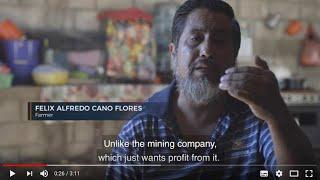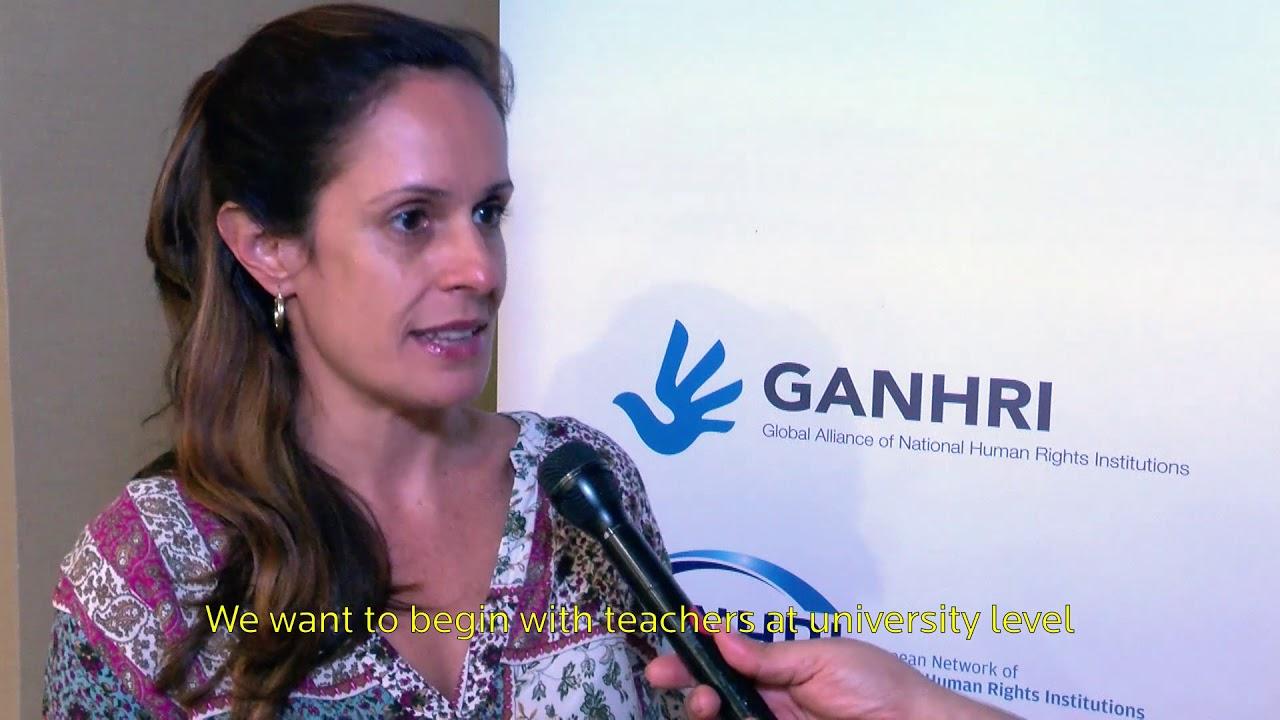The NHRI·EU Capacity Project

This global project has two tracks:
- It develops the capacity of national human rights institutions (NHRIs) globally in order for them to be able to become efficient institutions
- It supports the development of the global and regional secretariats of their networks in order to improve sustainability of the secretariats and improve their interactions with human rights mechanisms at regional and global levels.
The project started with a first phase from 2016 to 2018. In January 2019 it entered its second phase (2019-2021). This page focus on the general outset of the project and the first phase. Read more about the second phase of the project here.
Get quarterly news and updates about the NHRI·EU Capacity Project directly in your inbox.
Purpose
The purpose of this project is to increasing the impact on the promotion and protection of human rights by NHRIs in the areas of human rights education, monitoring and reporting, business and human rights and economic, social and cultural rights. By the end of the project, all targeted NHRIs will better fulfill their mandates in these areas. Furthermore, the purpose is to support the regional networks of NHRIs and the global alliance of NHRIs to improve efficiency of their organisations. These secretariats will by the end of the project gain acknowledgment as key international human rights stakeholders and act as recognised regional/global networks of NHRIs.
VIDEO: Addressing business and human rights in Guatemala and El Salvador
The difference we make
Targeting NHRIs is a strategic priority for the Danish Institute for Human Rights. While there has been an enormous global increase in the establishment of NHRIs and NHRIs now have the opportunity to exert significant influence on standard setting in the UN, many NHRIs still face multiple challenges in fulfilling their mandates.
Almost one-third of NHRIs worldwide do not fully meet the UN Paris Principles. Many NHRIs face challenges in addressing new serious and trans-boundary threats to human rights. The project aims to support NHRIs to strengthen their role as agents to promote and protect human rights in the changing global context for human rights.
Increasingly, the UN and civil society movements are calling for coordinated NHRI responses to address human rights violations. These demands for increasing international engagement require NHRIs to coordinate more closely and to raise the quality of their activities and organisation, so that NHRIs have the capacity to fulfil their role and ultimately to secure prevention and remediation of human rights violations of individuals and groups. The project will ensure capacity strengthening of NHRIs in functional and thematic issues via the four regional networks/ gsecretariats and the ICC, by applying verified capacity development methodologies such as blended learning. The project will furthermore build capacity to ensure professional and sustainable secretariats at regional and global level fit for strategy implementation, coordination and communication.
Activities
The project aims to strengthen the capacities of NHRIs individually and collectively in line with the UN Paris Principles, in order to increase their impact and effectiveness in promoting and protecting human rights, with a specific focus on their activities related to business and human rights, and economic, social and cultural rights, monitoring and reporting to regional and international human rights bodies and promotion of human rights education into the formal education sector.
VIDEO: Human rights educators from the entire Latin American continent met in Panama. The objective: To develop the capacity of the institutions to strengthen a structural approach to human rights education.
Courses
One set of activities will focus on developing and running blended learning courses on these topics in collaboration with the regional secretariats.
VIDEO: We have created e-learning courses on human rights and they are available in both English, French, Spanish and Arabic. Watch this short video about why, what and how.
Below we will runningly list current courses with links to further course descriptions and application forms (if not already conducted):
- Business and human rights blended learning in collaboration with Asia Pacific Forum of National Human Rights Institutions
- Business and human rights blended learning in collaboration with Network of African National Human Rights Institutions
- Human rights and education blended learning in collaboration with European Network of National Human Rights Institutions
- Monitoring and reporting blended learning with the Network of African National Human Rights Institutions
- Economic Social and Cultural rights blended learning with The European Network of National Human Rights Institutions
- Monitoring and reporting blended learning with Asia Pacific Forum
- Human rights education blended learning with Network of African National Human Rights Institutions
- Business and human rights blended learning with European Network of National Human Rights Institutions
- Economic Social and Cultural rights blended learning with the Network of African National Human Rights Institutions
- Monitoring and reporting blended learning course with ENNHRI
- Human Rights Education Blended Learning in collaboration with the Network of the Americas
- Economic, Social and Cultural Rights blended learning for the Americas
- Business and human rights blended learning for the Americas
Partners
- International Coordinating Committee of National Institutions for the Promotion and Protection of Human Rights (ICC)
- Asia Pacific Forum of National Human Rights Institutions (APF)
- Network of African National Human Rights Institutions (NANHRI)
- European Network of National Human Rights Institutions (ENNHRI)
- On behalf of the Americas region, Defensoria del Pueblo del Estado Plurinacional de Bolivia (Bolivia Ombudsman)
Region
The project is global and beneficiaries are approximately 100 NHRIs in all regions will benefit. In addition, the five secretariats located in Kenya, Geneva, Sydney and Brussels are also beneficiaries.
Starts: 2016
Ends: 2018
Contact
Documents
Links
- Read about the NHRI.EU - phase II
- TENDER: "External Evaluation of the EU-funded project: Capacity Building of Nat…
- Sign-up to our newsletter here - get quarterly updates about the NHRI·EU Capaci…
- Read our latest newsletter
- Newsletter #3
- Newsletter #2
- Newsletter #1
- VIDEO: Human Rights Education workshop in Sarajevo (on our Facebook page)
- NHRI e-learning courses


